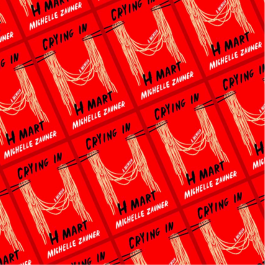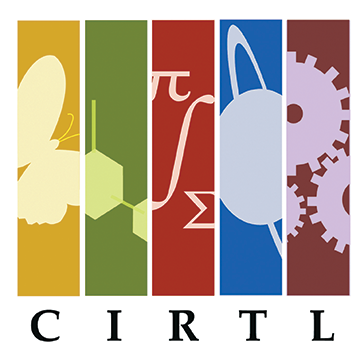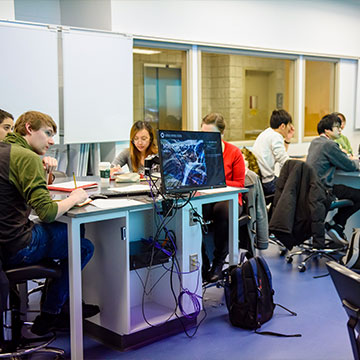| VIEW IN BROWSER | |
Welcome to Fall!Dear Colleagues, Recently at the Office of the Provost’s New Faculty Welcome, we engaged in an invigorating discussion about the power of great beginnings. We explored ways to infuse the familiar ritual of sharing the syllabus on the first day of class with a deeper sense of purpose and even greater possibilities. We drew inspiration from Harrington and Thomas’s (2018) Designing a Motivational Syllabus, which asks us to consider how we might move away from “a punishing list of policies or a repository for contractual language” and (re)center our syllabi on learning to ignite students’ intrinsic motivation about the transformative educational journey that lies ahead. To ensure that The Searle Center’s newsletter conveys our aspirations, I revisited their syllabus checklist: Is the tone inviting? Does it demonstrate our passion? Is the value and purpose clear? Are we offering something for everyone? Is there a well-organized pathway? We hope to not only spark curiosity but also to remove friction by identifying common pinch points, synthesizing the latest developments from the scholarship of learning and teaching, and distilling research-supported strategies that can have big impact. In this issue, we describe authentic listening as a valuable tool for greater self-awareness and empathy. We share how Brookfield’s call for critical reflection aligns with our shared identity as life-long learners. We celebrate our partnership with University Teaching Award winners and showcase innovators like Patti Wolter, who has redefined rigor as meaningful feedback that promotes growth and connection. We look forward to continuing this thought-provoking conversation about authentic ways to evaluate student work with Robert Talbert’s keynote and the Reimagining Assessment Practicum. As part of my role on the AI Advisory Committee, we will continue to collaborate with experts and stay at the forefront of rapid developments in Generative AI by curating instructor resources, inviting thought-leaders like Casey Fiesler, and hosting workshops that feature new pedagogical strategies. As we embark on this new academic year, I want to personally invite you to join us in co-creating spaces where instructors can find restorative community and empowering approaches to navigating the continually shifting landscape of higher education. Kindest Regards, Jennifer Keys, Ph.D., Senior Director (she/her/hers) | |||||||||||||||||||||
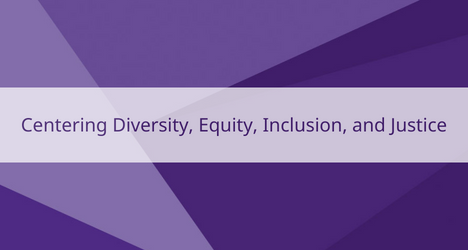 | |||||||||||||||||||||
Purpose-Driven PedagogyAs The Coffee Lab–exemplary for its incorporation of multiple high-impact practices–recognizes, "For hundreds of years,coffee has been an enabler of social occasion, conversation and community.” We are proud to feature our new mission on each bag of ethically sourced coffee that we share. As part of the Searle Center’s multi-year strategic planning process, we continue to embrace our original mission of advancing learning and we have made a commitment to centering diversity, equity, inclusion, and justice in all our areas of focus. Our Mission
| |||||||||||||||||||||
Developing Self-Awareness: A Precursor to Inclusive TeachingBy Veronica Y. Womack, Associate Director, Inclusive Learning Communities When I became an educational developer after years of studying research mentoring relationships, I knew that my approach would be informed by social identity theories and active listening. It was interesting to recognize that building effective relationships were just as important for instructors as they are for mentors, especially when the instructor aims to cultivate an inclusive learning environment. Within these relationships, instructors can demonstrate empathy by authentically listening to students and commiserating with the social context context. Dewsbury’s (2020) Deep Teaching Model posited that an increase in self-awareness better positions instructors to develop empathy for their students. Self-awareness is even more important if the instructor lacks formative experience considering students’ diverse backgrounds as part of their practice. When an instructor is not exposed to diverse perspectives, they may hold implicit biases and, without realizing it, react to students’ social identities based on internalized opinions concerning their ability. Self-awareness involves “doing the work.” Northwestern’s first principle of inclusive teaching is based on the idea that instructors must recognize and reflect on their own culture and identity before truly understanding another person's culture. Kumagai & Lypson (2009) invited medical educators to engage in “critical self-reflection” to understand one’s own assumptions, biases, and values and then shift “one’s gaze from self to others and conditions of injustice in the world.” This self-awareness should also consider access to resources in relation to one’s social positioning, defined by Dewsbury (2020) as “a consequence of individual intentions and the social structure within which they navigate.” Self-awareness is a precursor to inclusive teaching because it is the foundation for authentic and meaningful cross-cultural relationships; but it should also be viewed as a “never-ending journey.” As stated in Northwestern Principles of Inclusive Teaching, “instructors should continually work to address their biases and other prejudiced behaviors that can have a negative impact on student learning.” To keep critical self-awareness as an inclusive teaching practice, ask yourself, “What are the historical and contemporary drivers of my pedagogy?” | |||||||||||||||||||||
| |||||||||||||||||||||
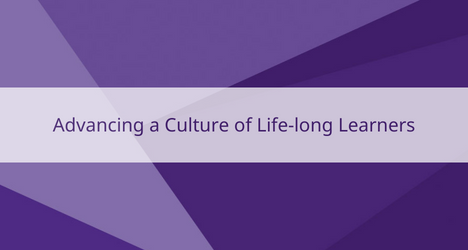 | |||||||||||||||||||||
| |||||||||||||||||||||
Stephen Brookfield’s (2019) Becoming a Critically Reflective TeacherBecoming a Critically Reflective Teacher is a favorite book at the Searle Center and available through the Menges Library. Brookfield’s book framed the welcome and orientation for graduate students and postdocs in the Reflective & Effective Teaching Program. And to launch the 2023-24 cohort of Searle Fellows, faculty participants and their faculty mentors received a copy of the book. Brookfield’s encouragement to engage in teaching as an iterative process through which instructors continuously reflect on their teaching practices directly aligns with Searle’s ongoing mission to advance learning for everyone. Brookfield delineates four primary lenses for instructors to apply to their critical self-reflection: their students’ eyes, their peers’ perceptions, their personal experiences, and the theory and research of teaching and learning. Before he makes the case for examining one’s teaching through these lenses, he begins by outlining the role of power and hegemony in teaching, which I was excited to discuss in detail with the Searle Fellows during a session on “Uncovering Assumptions in Teaching.” In our 90 minutes together, we explored the seven main hegemonic assumptions Brookfield names in the book. We critically examined our own and each other’s teaching statement drafts to identify potential assumptions being made and assessed whether those assumptions were warranted or needed revision. As Brookfield notes, assumptions are the culmination of our lived experiences, cultures, and other influences. They are, in certain situations, valid. They become hegemonic when they serve a larger system–often, the financial interests of the institution–rather than those working within, namely, students and teachers. By uncovering–and revising when needed–assumptions in our approaches to teaching, we can become more critically reflective instructors, allowing us to better understand how a variety of audiences may view, be impacted by, or understand those approaches. Below are the most identified assumptions from our session at the Searle Fellows Retreat. Three of Brookfield’s Hegemonic Assumptions of Teaching:1. “I must motivate students by my charismatic singularity.” This assumes “if you are a sufficiently charismatic performer, you’ll ignite your students’ enthusiasm for learning. If not, they’ll remain disinterested and apathetic” (42). 2. “Perfect 10 Syndrome” "Because letting people stick with what comes easy to them is a form of cognitive imprisonment, one could argue that anyone who consistently scores a perfect ten is just as likely to be doing something wrong as something right" (51). 3. “We meet everyone’s needs.” "The meeting needs assumption means that we devote a lot of energy to keeping the customers satisfied. We definitely don't want them to feel confused or angry because we have asked them to do something they find difficult and would rather avoid. But the view simply ignores pedagogic reality” (56). Do any of these resonate with how you think about and message your own teaching? Are they assumptions you should consider revising or are they valid? | |||||||||||||||||||||
Educator Spotlight: Patti Wolter | |||||||||||||||||||||
| |||||||||||||||||||||
Patti Wolter is the Charles Deering McCormick Distinguished Clinical Professor and Helen Gurley Brown Magazine Professor in the Medill School of Journalism, Media & Integrated Marketing Communications. Wolter is a 2020 recipient of a University Teaching Award. She earned bachelor's and master's degrees at Medill. You’ve implemented ungrading into your teaching. Why did you decide to experiment with ungrading? How is it going?I'm a true believer in decoupling learning from grades. I read Grading for Equity, which really changed my thinking. In my writing class I'd always tried to emphasize revision. In Winter 2023 I had this reason for doing it as labor-based grading. The students talked about how I’d given them so much more feedback, but I knew I wasn't giving more feedback. They read the feedback differently when there's not a letter grade on top of it. How do you think about and approach inclusive teaching?It’s recognizing the whole person and what they're bringing to class, or what they can't possibly bring to class. If this person is having problems learning the way I'm teaching, what do I need to change about my teaching? And what do we need to help them be able to learn better? And sometimes that's systemic, sometimes it's something I can do in my classroom, and sometimes it's about harnessing other resources for them. But that flexibility is ultimately going to help them to graduate with confidence. Especially for journalism students, how are you addressing Generative AI in the classroom? What do you see as the role of Generative AI in their future careers?What I'm telling students is none of us fully understand it. There are journalistic institutions that don't allow use of AI right now, which is pretty short-sighted. And there are jobs where you're expected to use it. We are going to experiment as a class this fall on that very question. They will do a set of handwritten brainstorming exercises. Then I'm going to make them plug them into ChatGPT and we’ll see what happens. I'm definitely going to work some fact-checking and verification all the way through. What has been your favorite Searle Center experience?A student of mine who became faculty asked me to be her Searle Fellow Mentor faculty mentor. I loved that year. I learned so much by being part of these conversations about critical thinking and cross-discipline training at a very engaging level. Read the full interview with Patti Wolter. | |||||||||||||||||||||
Congratulations to the Distinguished Fellows of the Searle Center!The recipients of the annual University Teaching Awards become Distinguished Fellows of the Searle Center for a three-year term. In their roles as Distinguished Fellows, these inspiring, innovative educators help to heighten the visibility of interdisciplinary, campus-wide conversations about learning and teaching praxis. We are excited to welcome the latest cohort of Distinguished Fellows who will enhance Searle Center offerings through engagement in activities such as speaking on panels, collaborating in workshops, and amplifying the importance of teaching in public venues: Ben Gorvine (Weinberg), Brent E. Huffman (Medill), Daniel Immerwahr (Weinberg), Elizabeth Norton (Communication), Aaron Peterson (Weinberg), Reuel Rogers (Weinberg), and Lilah Shapiro (SESP). | |||||||||||||||||||||
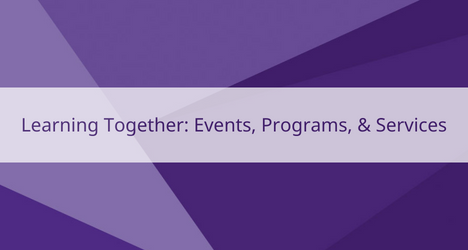 | |||||||||||||||||||||
| |||||||||||||||||||||
| |||||||||||||||||||||
| |||||||||||||||||||||
| |||||||||||||||||||||
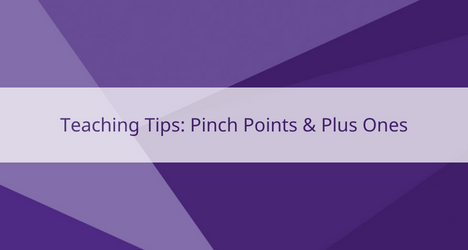 | |||||||||||||||||||||
| |||||||||||||||||||||
As Patti Wolter said in her Educator Spotlight interview “none of us fully understand it.”And as the student panel during the August Generative AI week surfaced, students are just as ambivalent about instructors using GAI tools as instructors are about students. While the unknown can be disorienting, instructors do not need to start from a place of distrust and the commensurate assumption that what is needed is a “punishing list of policies.” The plus side to not understanding fully and having ambivalent feelings is the opportunity this creates for instructors to leverage inclusive teaching practices. We can invite students into authentic conversations about the ethics and instrumental value of GAI tools, and work together to co-create communal agreements, expectations, and assessment practices based on the shared understandings that emerge. Join us in conversation throughout the year, as we continue to develop responsive and leading-edge pedagogical programming, including Casey Fiesler’s “Ethics and Speculation in the Age of AI” lecture and Searle’s “Generating Active Digital Readers in a ChatGPT World” session. Our Learning & Teaching Guides and the videos from the Generative AI Immersion week, co-created with our colleagues at NUIT’s Teaching Learning and Technologies, are aggregated on the Artificial Intelligence at Northwestern website. | |||||||||||||||||||||
|
|
Copyright © 2024 Searle Center for Advancing Learning and Teaching |









